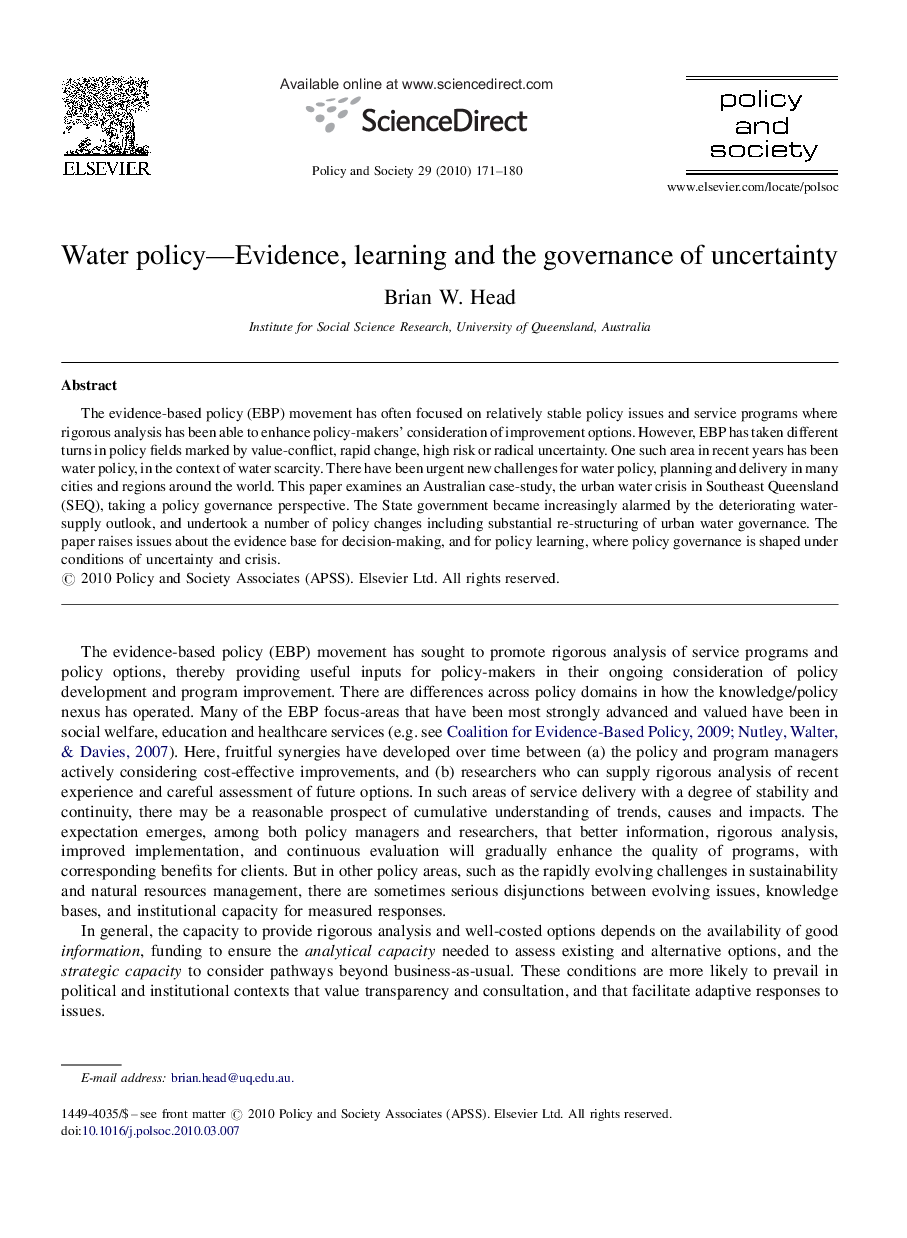| Article ID | Journal | Published Year | Pages | File Type |
|---|---|---|---|---|
| 1061718 | Policy and Society | 2010 | 10 Pages |
The evidence-based policy (EBP) movement has often focused on relatively stable policy issues and service programs where rigorous analysis has been able to enhance policy-makers’ consideration of improvement options. However, EBP has taken different turns in policy fields marked by value-conflict, rapid change, high risk or radical uncertainty. One such area in recent years has been water policy, in the context of water scarcity. There have been urgent new challenges for water policy, planning and delivery in many cities and regions around the world. This paper examines an Australian case-study, the urban water crisis in Southeast Queensland (SEQ), taking a policy governance perspective. The State government became increasingly alarmed by the deteriorating water-supply outlook, and undertook a number of policy changes including substantial re-structuring of urban water governance. The paper raises issues about the evidence base for decision-making, and for policy learning, where policy governance is shaped under conditions of uncertainty and crisis.
